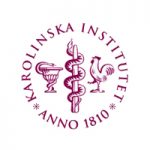项目介绍
If you want to establish your career as an early-stage researcher and are currently looking for the best possible foundation for your dreams and ambitions, it is right here in front of you. With this PhD position, we offer you the possibility of establishing your career as a scientist in photonic integrated circuits and underwater optical communication. You will be working at DTU Electro, in the Photonic Integrated Circuit based Systems (PICSys) group. The setting will be the cutting-edge laboratory for photonic integrated devices and advanced optical communications, and the access to one of the largest cleanroom facilities in European universities. You will be working with a group of professionals in photonic integrated devices, optical phased array, optical communications, optical computing, and FPGA hardware programming.
We are seeking a highly motivated and talented candidate for a PhD position to join our team and contribute to our efforts in developing integrated optical phased array (OPA) for biomedical imaging. The successful candidate will work on an innovative project aimed at developing integrated optical phased array-based multi-photon lightsheet fluorescence microscopy, which has the promising potential to revolutionize current biological studies and diagnostic methodology. This position offers a unique opportunity to engage in photonic integrated circuits (PIC) research, collaborate with DTU Health Tech and Faculty of Health and Medical Sciences at Copenhagen University, and drive the development of next-generation biomedical imaging solutions.
As a participant of the project, the PhD student will become part of a team at DTU with expertise in design, simulation, nanofabrication, characterization, and application of PIC. The activities within the project will benefit from synergies with other projects in the group as well as with other activities in the department. The main supervisor will be Dr. Hao Hu, DTU Electro.
Responsibilities and qualifications
An OPA is a (periodic) arrangement of optical antennas that all emit light in phase to project a collimated beam. The emission angle and shape of this beam can be tuned by adjusting the relative phases and amplitudes that feed into the individual emitters or antennas. Particularly, OPAs are compatible with cheap and high-volume manufacturing. Due to the unique features of compact size, fast scanning and low cost, the integrated OPAs are becoming a transformative technology for solid-state beam steering.
Your overall focus will be developing integrated OPA on silicon nitride (SiN) platform for biomedical imaging. Your primary tasks will be:
- Design and fabricate optical phased array chips on SiN platform
- Characterize the integrated optical phased array with on-chip calibration functionality for solid-state optical beam steering and focus scanning
- Applying integrated OPAs for biomedical imaging applications
- Supervise BSc and MSc student projects
- Data analysis, writing of scientific articles and presentations at conferences and meetings
- Participate in outreach activities including, but not limited to, social media updates, participation in public events and campaigns, as well as dissemination to popular press
The exact research activities will be continuously adapted to ensure high relevance and impact.
As part of the Danish PhD program, you will follow a number of PhD courses and you will have an opportunity to have external research stay at one of the partner universities in Europe. You must hold a two-year master’s degree (120 ECTS points) or a similar degree with an academic level equivalent to a two-year master’s degree.
Your required qualifications and skills are:
- Excellent English communication skills both spoken and written
- Self-motivation in research and innovation
- Ability to work independently while effectively collaborating with partners
- A master’s level education in the fields of integrated photonics, silicon photonics, or nanophotonics
- Experience in simulation tools such as Lumerical, COMSOL
As an ideal candidate, you should also have one or more competences below:
- Experience in simulation, design, and characterization of photonic integrated circuits
- Prior experience in a cleanroom environment is favourable
- The ability to work independently while effectively collaborating in projects with both academic and industrial partners
- Experience with PCB and FPGA design
Approval and Enrolment
The scholarship for the PhD degree is subject to academic approval, and the candidate will be enrolled in one of the general degree programmes at DTU. For information about our enrolment requirements and the general planning of the PhD study programme, please see DTU’s rules for the PhD education.
Assessment
The assessment of the applicants will be made by Senior Researcher Hao Hu.
We offer
DTU is a leading technical university globally recognized for the excellence of its research, education, innovation and scientific advice. We offer a rewarding and challenging job in an international environment. We strive for academic excellence in an environment characterized by collegial respect and academic freedom tempered by responsibility.
Salary and appointment terms
The appointment will be based on the collective agreement with the Danish Confederation of Professional Associations. The allowance will be agreed upon with the relevant union.
The period of employment is 3 years. The starting date is negotiable but preferred to be 1 March 2025, or as soon as possible. The position is a full-time position.
You can read more about career paths at DTU here.
Further information
Further information may be obtained from Dr. Hao Hu, huhao@dtu.dk.
You can read more about DTU Electro at www.electro.dtu.dk.
If you are applying from abroad, you may find useful information on working in Denmark and at DTU at DTU – Moving to Denmark. Furthermore, you have the option of joining our monthly free seminar “PhD relocation to Denmark and startup “Zoom” seminar” for all questions regarding the practical matters of moving to Denmark and working as a PhD at DTU.
Application procedure
Your complete online application must be submitted no later than 22 November 2024 (23:59 Danish time). Applications must be submitted as one PDF file containing all materials to be given consideration. To apply, please open the link “Apply now”, fill out the online application form, and attach all your materials in English in one PDF file. The file must include:
- A letter motivating the application (cover letter)
- Curriculum vitae
- Grade transcripts and BSc/MSc diploma (in English) including official description of grading scale
- A mandatory research statement discussing your comprehension or achievements in photonic integrated circuits or optical phased array, including an analysis of the opportunities, challenges, obstacles, etc. You are more than welcome to include your research results and justify how the results could contribute to this research field, if any. Maximum two pages.
You may apply prior to obtaining your master’s degree but cannot begin before having received it.
Applications received after the deadline will not be considered.
All interested candidates irrespective of age, gender, race, disability, religion or ethnic background are encouraged to apply.
DTU Electro employs more than 300 skilled researchers with competencies in electrical and photonics engineering. As a department we strive towards creating sustainable energy and a greener internet, as well as strengthening cyber security and health technology. Working with industry and public organizations is one of our top priorities to find and implement new solutions to our society. We aim to offer education, research, and innovation of the highest standard, and our focus on application-oriented research enables us to work across many engineering disciplines and research areas, such as IT and the medical and health sciences. We have a close collaboration with researchers from all over the world, just as we collaborate with industry and public authorities about the dissemination of solutions based on electrical and photonics engineering as their key enabling technologies.
Technology for people
DTU develops technology for people. With our international elite research and study programmes, we are helping to create a better world and to solve the global challenges formulated in the UN’s 17 Sustainable Development Goals. Hans Christian Ørsted founded DTU in 1829 with a clear mission to develop and create value using science and engineering to benefit society. That mission lives on today. DTU has 13,500 students and 6,000 employees. We work in an international atmosphere and have an inclusive, evolving, and informal working environment. DTU has campuses in all parts of Denmark and in Greenland, and we collaborate with the best universities around the world.
联系方式
电话: (+45) 45 25 25 25相关项目推荐
KD博士实时收录全球顶尖院校的博士项目,总有一个项目等着你!





